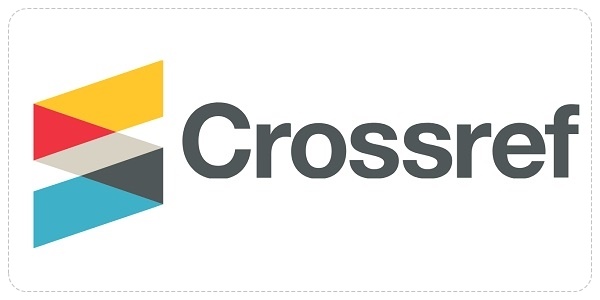Analysis of Food Vlog Media Integrated Ethnoscience Usage on Students' Critical Thinking Skill
Abstract
This study investigates the effect of implementing Food Vlog media in ethnoscience-integrated science instruction on students’ critical thinking skills. The research employed a quantitative approach using a reasoned multiple-choice test to assess students' critical thinking. The participants were middle school students (SMP and MTs) engaged in science learning activities designed with ethnoscience content and supported by Food Vlog-based media. Data were collected through pre-tests and post-tests, and analyzed using parametric statistical methods. A paired sample t-test was conducted using SPSS (Statistical Package for the Social Sciences) to determine the statistical significance of the differences in students' scores before and after the intervention. The results indicated a significance value of 0.000, which is below the threshold of 0.005, confirming a statistically significant improvement. The N-Gain test further demonstrated that the improvement in students' critical thinking skills falls within the medium category for both SMP and MTs groups. These findings suggest that the use of Food Vlog media in ethnoscience-integrated science learning contributes positively to the development of critical thinking skills. The study highlights the pedagogical potential of combining digital media and cultural content to foster meaningful cognitive engagement in science education.
Keywords
Full Text:
PDFReferences
Afwiyana, N. D., & Amrozi, Y. (2019). Langkah cerdas bermedia sosial di kalangan santri milenial. SAINTEKBU, 11(2), 39-44. https://doi.org/10.32764/saintekbu.v11i2.361
Agra, G., Formiga, N. S., Oliveira, P. S. D., Costa, M. M. L., Fernandes, M. D. G. M., & Nóbrega, M. M. L. D. (2019). Analysis of the concept of Meaningful Learning in light of the Ausubel's Theory. Revista brasileira de enfermagem, 72, 248-255. https://doi.org/10.1590/0034-7167-2017-0691
Ahmad, D. N. (2021). Analysis of SAVI learning model with the task of observation of video on science learning in producing analytical thinking and critical thinking abilities. Jurnal Penelitian Pendidikan IPA, 7(1), 121-128. https://doi.org/10.29303/jppipa.v7i1.543
Al Hibra, B., Hakim, L., & Sudarwanto, T. (2019). Development of vlog learning media (video tutorial) on student materials. Tax at SMK PGRI 1 Jombang. International Journal of Educational Research Review, 4(3), 435-438. https://doi.org/10.24331/ijere.573945
Arumsari, A., Octaviani, S. K., & Pravitasari, S. G. (2019). The Implementation of Video Blogging to Improve English Speaking Skill and English Learning Motivation of Eleventh Grade Students. International Journal of English Linguistics, Literature, and Education (IJELLE), 1(2), 60-65. https://doi.org/10.32585/ijelle.v1i2.537
Butler, H. A., Pentoney, C., & Bong, M. P. (2017). Predicting real-world outcomes: Critical thinking ability is a better predictor of life decisions than intelligence. Thinking Skills and Creativity, 25, 38-46. https://doi.org/10.1016/j.tsc.2017.06.005
Debbag, M., & Fidan, M. (2022). Vlogs for enhancing trainee teachers’ motivational beliefs about school experience and teaching practice: They are on the factory floor for professional development. Journal of Research on Technology in Education, 54(5), 719-735. https://doi.org/10.1080/15391523.2021.1911721
Decristan, J., Hondrich, A. L., Büttner, G., Hertel, S., Klieme, E., Kunter, M., ... & Hardy, I. (2015). Impact of additional guidance in science education on primary students’ conceptual understanding. The Journal of Educational Research, 108(5), 358-370. https://doi.org/10.1080/00220671.2014.899957
Dewi, L. M. I., & Rimpiati, N. L. (2016). Efektivitas penggunaan media pembelajaran video interaktif dengan seting diskusi kelompok kecil untuk meningkatkan keterampilan berpikir kritis pada anak usia dini. Jurnal Pendidikan Universitas Dhyana Pura, 1(1), 31-46.
Dwyer, C. P., Hogan, M. J., & Stewart, I. (2014). An integrated critical thinking framework for the 21st century. Thinking skills and Creativity, 12, 43-52. https://doi.org/10.1016/j.tsc.2013.12.004
Fidan, M., & Debbag, M. (2018). The usage of video blog (Vlog) in the "School Experience" Course: The opinions of the pre-service teachers. Journal of Education and Future, 13, 161–177.
Görür, N., & Topalcengiz, Z. (2021). Food safety knowledge, hygiene practices, and eating attitudes of academics and university students during the coronavirus (COVID‐19) pandemic in Turkey. Journal of Food Safety, 41(5), e12926. https://doi.org/10.1111/jfs.12926
Hake, R. R. (1999). Analizing change/gain scores. Dept of Physics Indiana University.
Huang, X., Erduran, S., Zhang, P., Luo, K., & Li, C. (2022). Enhancing teachers’ STEM understanding through observation, discussion and reflection. Journal of Education for Teaching, 48(5), 576-591. https://doi.org/10.1080/02607476.2021.2006571
Izzah, L., & Hadi, M. S. (2018). Pembelajaran introduction to linguistics melalui vlog. Seminar Nasional Pendidikan Era Revolusi “Membangun Sinergitas Dalam Penguatan Pendidikan Karakter Pada Era IR 4.0,” 191–198.
Johan, R. C., Rullyana, G., & Ardiansah, A. (2022). Hyper content e-module in information behavior course with the assistant of screencast. Journal of Education and Learning (EduLearn), 16(2), 210-218. https://doi.org/10.11591/edulearn.v16i2.20339
Johan, R. C., Sutisna, M. R., Rullyana, G., & Ardiansah, A. (2020). Developing online learning communities. In Borderless Education as a Challenge in the 5.0 Society (pp. 145-153). Routledge.
Juwantara, R. A. (2019). Analisis teori perkembangan kognitif piaget pada tahap anak usia operasional konkret 7-12 tahun dalam pembelajaran Matematika. Jurnal Ilmiah Pendidikan Guru Madrasah Ibtidaiyah, 9(1), 27-34.
Karatay, S. K., Bakirci, H., & Bülbül, S. (2024). Mobile learning supported science teaching application: Electric charges and electric energy. Education and Information Technologies, 29(15), 19783-19811. https://doi.org/10.1007/s10639-024-12631-0
Kumar, L., & Singh, D. K. (2024). A novel aspect of automatic vlog content creation using generative modeling approaches. Digital Signal Processing, 104462. https://doi.org/10.1016/j.dsp.2024.104462
Maulidah, I. (2017, August). Vlog: The mean to improve students' speaking ability. In International Conference on English Language Teaching (ICONELT 2017) (pp. 12-15). Atlantis Press. https://doi.org/10.2991/iconelt-17.2018.3
Meltzer, D. E. (2002). The relationship between mathematics preparation and conceptual learning gains in physics: A possible “hidden variable” in diagnostic pretest scores. American journal of physics, 70(12), 1259-1268. https://doi.org/10.1119/1.1514215
Oktariani, O., Febliza, A., & Fauziah, N. (2020). Keterampilan berpikir kritis calon guru kimia sebagai kesiapan menghadapi revolusi industri 4.0. Journal of Natural Science and Integration, 3(2), 114-127. http://dx.doi.org/10.24014/jnsi.v3i2.8791
Rahmawati, Y., Ridwan, A., Cahyana, U., & Wuryaningsih, T. (2020). The integration of ethnopedagogy in science learning to improve student engagement and cultural awareness. Universal Journal of Educational Research, 8(2), 662-671. http://dx.doi.org/10.13189/ujer.2020.080239
Rifa’i, A., & Anni, C. T. (2011). Psikologi Pendidikan. Universitas Negeri Semarang Press.
Sa'adah, M., Suryaningsih, S., & Muslim, B. (2020). Pemanfaatan multimedia interaktif pada materi hidrokarbon untuk menumbuhkan keterampilan berpikir kritis siswa. Jurnal Inovasi Pendidikan IPA, 6(2), 184-194. https://doi.org/10.21831/jipi.v6i2.29680
Sari, P. (2017). Using vlog in the youtube channel as a means to improve students’ motivation and confidence to speak english in intermediate 1 level of LB-LIA Jambi. International Journal of Language Teaching and Education, 1(1), 38-44. https://doi.org/10.22437/ijolte.v1i1.459.
Sholihah, T. M., & Lastariwati, B. (2020). Problem based learning to increase competence of critical thinking and problem solving. Journal of Education and Learning (EduLearn), 14(1), 148-154. https://doi.org/10.11591/edulearn.v14i1.13772
Sidiq, Y., Ishartono, N., Desstya, A., Prayitno, H. J., Anif, S., & Hidayat, M. L. (2021). Improving elementary school students’ critical thinking skill in science through hots-based science questions: A quasi-experimental study. Jurnal Pendidikan IPA Indonesia, 10(3), 378-386. https://doi.org/10.15294/jpii.v10i3.30891
Snelson, C. (2015). Vlogging about school on YouTube: An exploratory study. New Media & Society, 17(3), 321-339. https://doi.org/10.1177/1461444813504271
Susilana, R., Johan, R. C., & Rullyana, G. (2024). Pengembangan modul digital pembelajaran daring. UPI Press.
Tafonao, T. (2018). Peranan media pembelajaran dalam meningkatkan minat belajar mahasiswa. Jurnal komunikasi pendidikan, 2(2), 103-114. https://doi.org/10.32585/jkp.v2i2.113
Toha, M., Fikri, D., & Yusroh, M. (2023). Exploring students’ perceptions toward vlogging as a tool for enhancing English vocabulary acquisition. Abjadia: International Journal of Education, 8(2), 168-179. https://doi.org/10.18860/abj.v8i2.22867
Wang, Y. H. (2017). Exploring the effectiveness of integrating augmented reality-based materials to support writing activities. Computers & Education, 113, 162-176. https://doi.org/10.1016/j.compedu.2017.04.013
Wibowo, T., & Ariyatun, A. (2020). Kemampuan literasi sains pada siswa sma menggunakan pembelajaran kimia berbasis etnosains. Edusains, 12(2), 214-222. https://doi.org/10.15408/es.v12i2.16382
Xie, Q., Liu, X., Zhang, N., Zhang, Q., Jiang, X., & Wen, L. (2021). Vlog-based multimodal composing: Enhancing EFL learners’ writing performance. Applied Sciences, 11(20), 9655. https://doi.org/10.3390/app11209655
Yakob, M., Sari, R. P., & El Islami, R. A. Z. (2020, June). The effectiveness of science experiment through multimedia teaching materials to improve students’ critical thinking. In Journal of Physics: Conference Series (Vol. 1567, No. 4, p. 042018). IOP Publishing. https://doi.org/10.1088/1742-6596/1567/4/042018
Zhu, S., Yang, H. H., Wu, D., & Chen, F. (2021). Investigating the relationship between information literacy and social media competence among university students. Journal of educational computing research, 59(7), 1425-1449. https://doi.org/10.1177/0735633121997360
Zubaidah, S. (2018, October). Mengenal 4C: Learning and innovation skills untuk menghadapi era revolusi industri 4.0. In 2nd Science Education National Conference (Vol. 13, No. 2, pp. 1-18).
Zulhelmi, Z., Adlim, A., & Mahidin, M. (2017). Pengaruh media pembelajaran interaktif terhadap peningkatkan keterampilan berpikir kritis siswa. Jurnal Pendidikan Sains Indonesia (Indonesian Journal of Science Education), 5(1), 72-80.
DOI: https://doi.org/10.17509/pdgia.v22i3.75850
Refbacks
- There are currently no refbacks.
INDEXED BY

This work is licensed under a Creative Commons Attribution-ShareAlike 4.0 International License
















